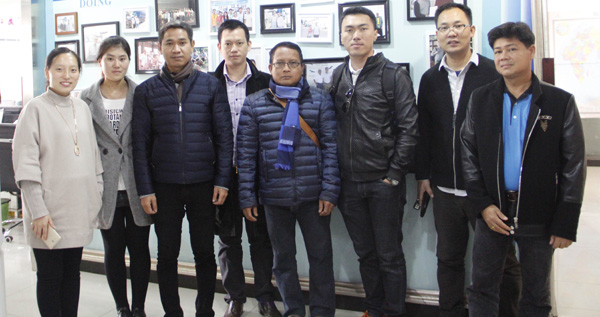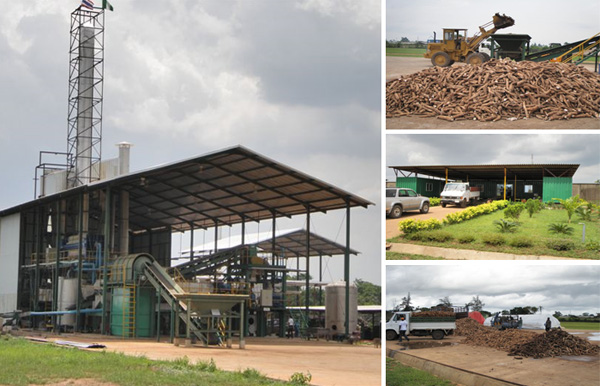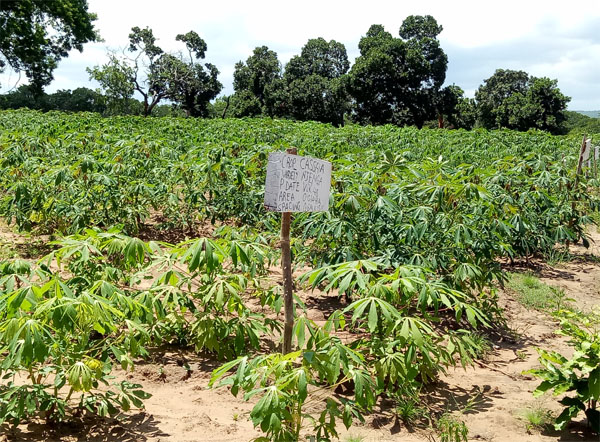Thailand tapioca starch processing situation
Tapioca as one of raw grains, It already has an advantage in production, such as high output per unit area and adaptability to poor land and great flexibility in planting and harvesting. Tapioca as a good raw material for starch processing with strong competitiveness. On a dry weight basis, its roots contain more starch than almost any other food crop, and tapioca starch can be easily extracted using simple techniques. Export prices are always lower than potato, corn and wheat starch produced by the European Union and the United States. For example, premium Thailand tapioca starch currently produced in Thailand costs about US$225 per ton, this means the tapioca starch with higher competitive in the international market.

Thailand customer visit for our cassava starch processing machine
Now, in Thailand, cassava has completed the conversion from staple foods to processing products and starch processing raw materials, brought many economic benefits to Thailand. This tapioca processing industry in Thailand began more than 50 years ago and developed rapidly in the 1990s, when trade restrictions drastically reduced the market for dried cassava chips used as livestock feed in Europe. FAO believes that the key to the future of cassava in the global and domestic starch market is the improvement of efficiency and quality as well as the reduction of production costs. African and Latin American countries need only look at Thailand, the world’s largest cassava producer, to find a successful model for the development of the cassava starch industry

Thailand tapioca starch manufacturing plant
The core of the Thai government’s initiative to promote cassava starch is the introduction of higher-yielding cassava varieties that have been developed from hybrids of indigenous and Latin American germplasm. By 1996, the improved cassava cultivation area had reached 380,000 hectares, or one-third of the cassava cultivation area in the country, and the current root yield was as high as 20 tons per hectare. Thailand now uses about 50% of its cassava root production, about 18 million tons, to extract about 2 million tons of starch. Half of it supplies domestic food and non-food industries, while the rest is exported, mainly to Japan and Taiwan. Thailand is also developing a new market for its starch – biofuel extracted from cassava as raw material for biofuel ethanol. Thailand’s leading oil company has announced feasibility study on a factory that uses cassava as a raw material to produce one million liters of ethanol per day.

Cassava planting
“Thailand has demonstrated the goals that can be achieved through the use of cheap labor, low-cost transport and efficient sales of products,” said FAO's Nebambi Lutaradio. “If more countries consider cassava a strategic and basic product of industry, it will benefit the development of their food, agriculture and industry sectors and promote employment in rural and urban areas.”
In Africa, there are signs of increasing interest in using native tapioca starch as an alternative to imported products. Uganda, Tanzania and Madagascar have already established tapioca starch companies, and many industries in Malawi have expressed interest in buying local tapioca starch for paper, cardboard, confectionery and food processing. At the same time, Nigeria, the main producer of cassava in the region, recently announced an ambitious plan to use cassava to produce ethanol biofuels.
As a plan promoted by IFAD and FAO, the Global Strategy for Cassava Development recognizes the importance of processing fresh tapioca roots to produce by-products such as starch in the context of a market-driven commodity chain approach. According to the Thailand tapioca starch processing manufacturer sample, there is no doubt that the tapioca starch processing is a good project, can strongly improve the economic earning for the cassava planting area.






